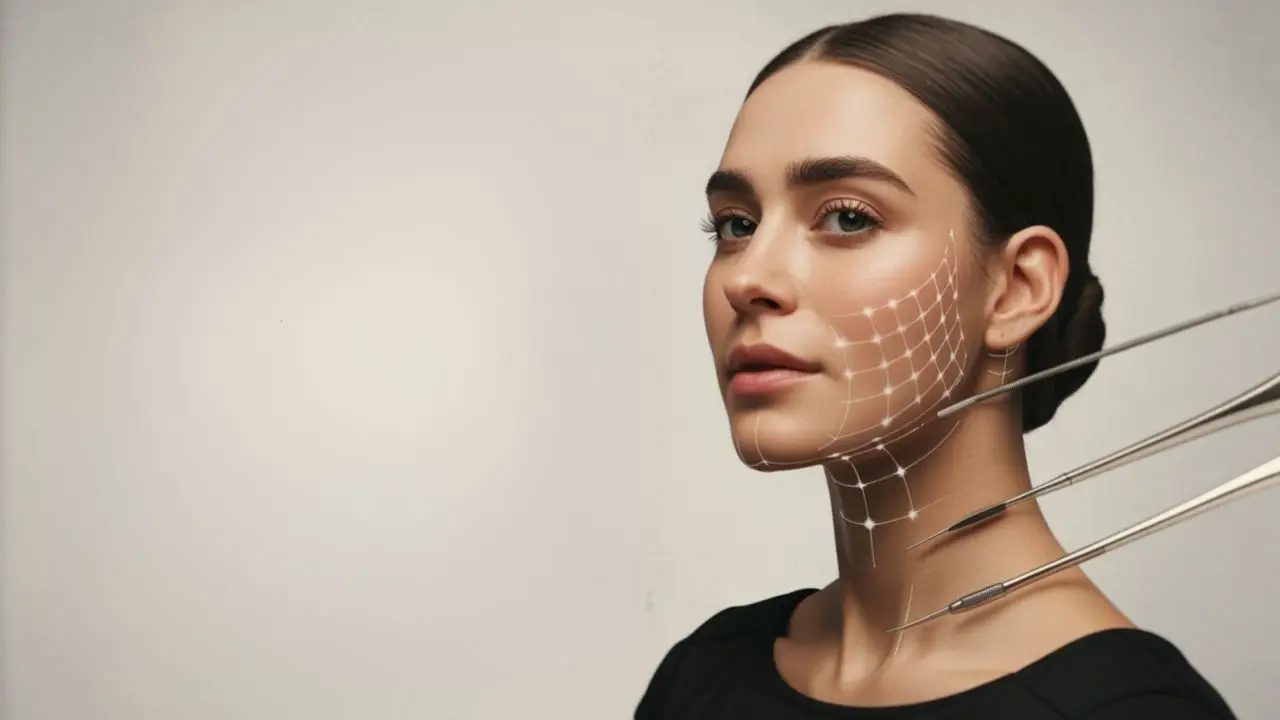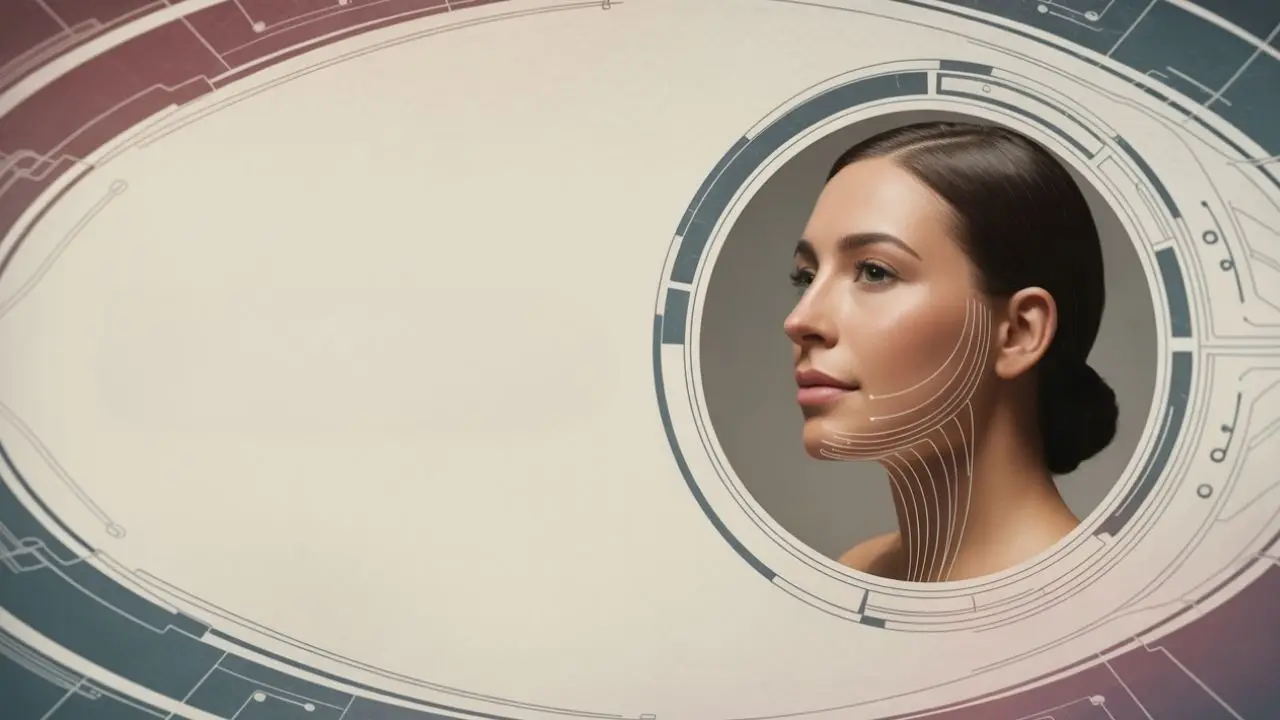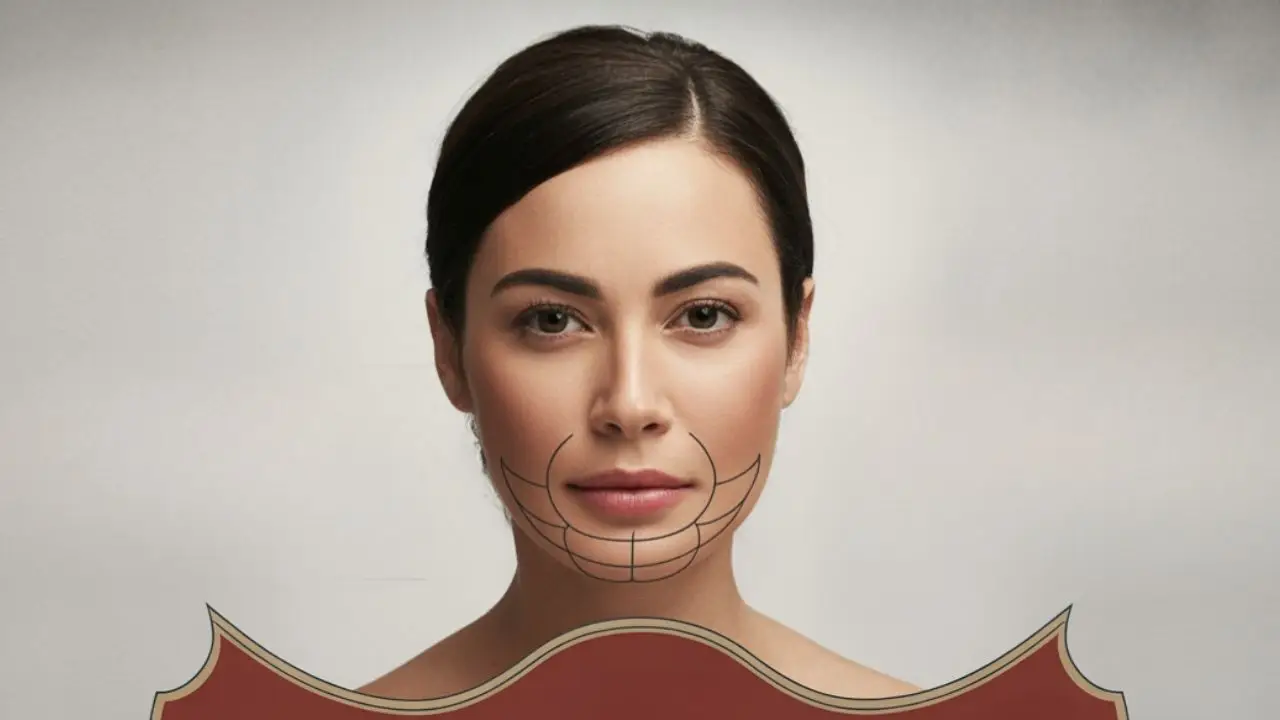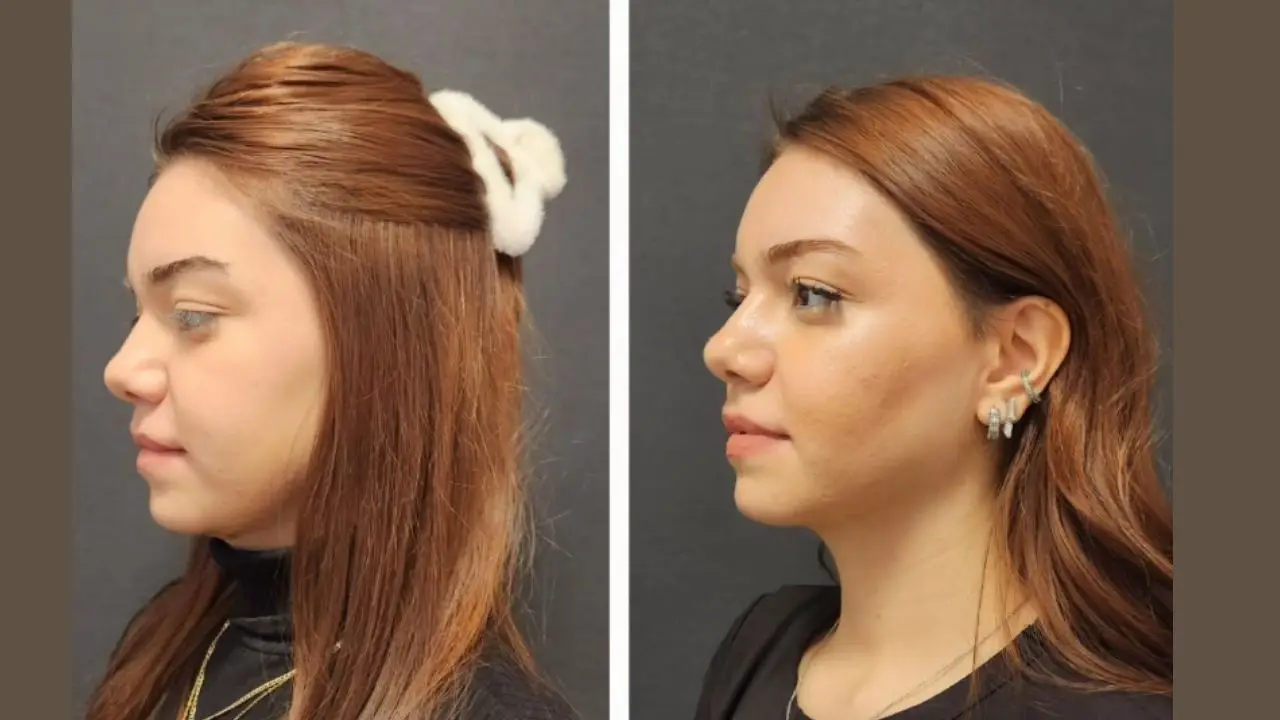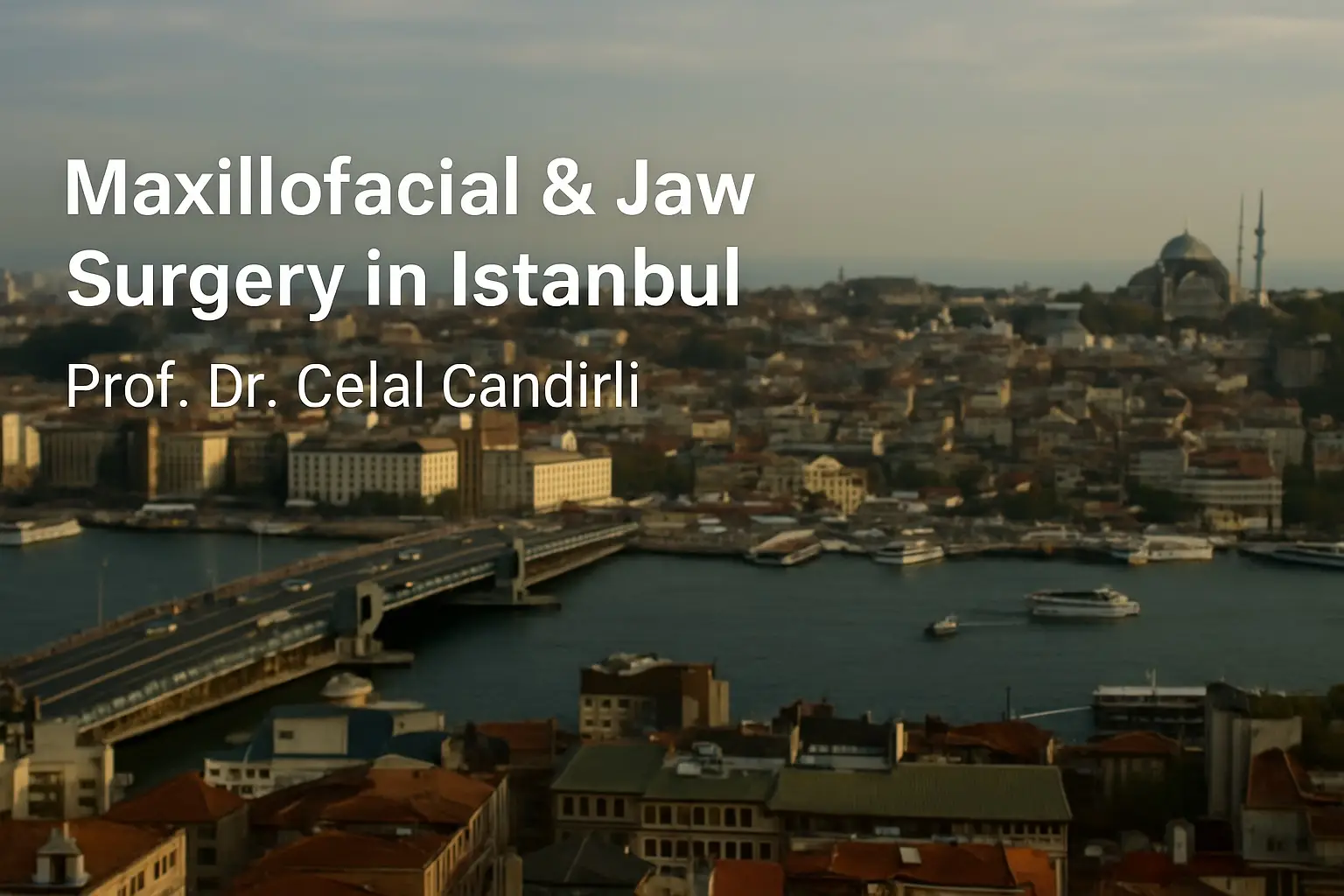Jaw surgery technologies have continuously advanced. Especially in the second half of the 20th century, significant scientific research and technological developments have been observed in this field.
Today, jaw surgery technologies have undergone a major transformation. Thanks to digital imaging technologies, precise surgical techniques, and 3D printing systems, patients’ treatment processes have become safer, faster, and more comfortable.
What is Oral and Maxillofacial Surgery?
Oral, dental, and maxillofacial surgery is a highly comprehensive field. It involves the surgical treatment of structures located in the oral cavity, jawbones, teeth, and facial region. This area consists of complex procedures that combine medicine, anatomy, and dentistry.
Also known as maxillofacial surgery, this specialty deals with both aesthetic and functional treatments of the oral, dental, and jaw areas. With the help of advanced jaw surgery technologies, a wide range of procedures are performed today—from post-trauma reconstructions and congenital defect corrections to aesthetic adjustments and tumor surgeries.
Modern jaw surgery technologies offer more precise treatment options for patients. Computer-assisted planning and microsurgical techniques implemented within this scope accelerate recovery and enhance the quality of surgical outcomes.
Which Department Covers Oral and Maxillofacial Surgery?
With today’s jaw surgery technologies, not only healthy individuals but also those with special care needs, chronic illnesses, and physical/mental disabilities can benefit from the diagnostic, treatment, and follow-up services of this department. The general scope of work includes:
- Jaw joint disorders
- Surgical and non-surgical tooth extractions
- Orthognathic surgical interventions
- Impacted tooth extractions
- Surgical and conservative treatment of jaw fractures
- Zygomatic and dental implant applications
- Diagnosis, treatment, and long-term follow-up of traumatic tissue and dental injuries
- Diagnosis and treatment of jaw tumors and cysts
- Bone augmentations
- Pre-prosthetic surgical procedures
- Sinus lift procedures
What Does Oral and Maxillofacial Surgery Do?
What exactly does oral, dental, and maxillofacial surgery involve? It covers a wide range of conditions. The treatment of these conditions is carried out more precisely and effectively with jaw surgery technologies, resulting in permanent solutions. Here’s a breakdown of related conditions and their treatments:
What Diseases Does Oral and Maxillofacial Surgery Treat?
Oral and maxillofacial surgery addresses a wide range of complex conditions affecting the jaws, face, and oral cavity. Below are answers to the most commonly asked questions about the diseases treated in this specialty.
- Jaw joint disorders (TMD): Includes diagnosis and treatment of temporomandibular joint disorders and related diseases, which may cause symptoms such as restricted jaw movement, pain, and joint sounds.
- Periodontal diseases: Involves advanced surgical treatment of gum-related diseases.
- Oral cancers: Covers the diagnosis, staging, and surgical treatment of cancers occurring in the tongue, lips, oral cavity, and jaw. Early diagnosis and intervention are crucial in such cancers.
- Tooth extraction complications: Includes treatment of infected, impacted, or complex tooth extractions.
- Trauma and injuries: Encompasses surgical reconstruction of facial bone fractures, soft tissue injuries, and jaw fractures.
- Congenital facial anomalies: Includes surgical correction of birth defects such as cleft lip and palate, aiming for both aesthetic and functional improvements.
Does Oral and Maxillofacial Surgery Involve Tooth Extractions?
Thanks to the latest jaw surgery technologies, patients now experience a more comfortable healing process post-treatment. However, such procedures should always be performed by expert and experienced surgeons.
Jaw Surgery Technologies in 2025
In 2025, the techniques used in oral, dental, and maxillofacial surgery have rapidly evolved. Particularly, modern surgical techniques and innovative jaw surgery technologies enable more efficient procedures with faster recovery. Personalized treatment plans, such as customized jaw surgeries, offer advantages like reduced pain after surgery.
The most common jaw surgery technologies used today include:
1 – Digital Planning
Digital planning for orthognathic surgeries involves creating 3D digital models of a patient’s jaw structure. This allows surgeons to perform more detailed and accurate surgical interventions.
This method, one of the most prominent jaw surgery technologies, provides patients with a clear understanding of what to expect during and after surgery. Dentists can also carry out the surgical planning process more effectively.
2 – 3D Tomography
The 3D tomography method helps surgeons make accurate decisions during procedures. With this jaw surgery technology, the jaw structure can be visualized in greater detail and clarity, allowing for more precise interventions.
3 – Laser Technology
Laser-based surgeries reduce bleeding and accelerate healing. This is one of the widely used jaw surgery technologies, applicable in various dental treatments such as gum disease therapy, tooth whitening, and cavity treatments.
Difference Between Oral and Maxillofacial Surgery and Dentistry

A dentist is a healthcare provider who ensures the oral and dental health of individuals. In Türkiye, they graduate from five-year dental programs.
An oral and maxillofacial surgeon, on the other hand, is a dentist who has completed a four-year specialization program in oral and maxillofacial surgery. This specialization is determined by the DUS (Dentistry Specialization Exam) in Türkiye. These professionals use specialized jaw surgery technologies to diagnose, treat, and follow up on diseases in the oral and jaw regions.
Book an Appointment – Celal Çandırlı Oral and Maxillofacial Surgery Hospital
Ready to take the next step toward better jaw health and facial harmony? Schedule a consultation to learn how upper jaw expansion surgery can benefit you.
Jaw Surgery Technologies
Many individuals seek treatment through oral and maxillofacial surgery due to jaw-related problems, as these issues often impact daily life—especially during eating or speaking. Thanks to jaw surgery technologies, these conditions can be effectively treated.
If you are experiencing such issues and are looking for support from a skilled and experienced surgeon, you can contact Prof. Dr. Celal Çandırlı Dental Clinic. You can also easily submit an appointment request on our website by providing your name, email, phone number, and message.
Prof. Dr. Celal Çandırlı is one of the most accomplished surgeons in the field of jaw surgery, always supporting his patients with up-to-date knowledge and the latest jaw surgery technologies.
Frequently Asked Questions
There are many commonly asked questions and areas of curiosity regarding jaw surgery technologies. Some of them include:
1 – What Procedures Are Performed in Jaw Surgery?
Thanks to jaw surgery technologies, disorders occurring in the oral, dental, and jaw regions can be treated more easily and comfortably. This includes treatment of all soft tissues in the oral cavity, the teeth, jaw joint disorders, and surgical interventions for various diseases affecting the jaw.
2 – What Are the Latest Jaw Surgery Technologies?
The most widely used jaw surgery technologies today include:
- Biomaterials and synthetic bone applications
- Laser surgery
- Minimally invasive surgical techniques
- 3D imaging and computer-assisted surgery
3 – Is Jaw Surgery the Same as Orthodontics?
Jaw surgery deals with more serious health issues involving the jawbone, teeth, and jaw joints, whereas orthodontics focuses on jaw alignment and teeth positioning.
4 – Is Jaw Surgery Difficult?
Jaw surgery is technically complex and includes many detailed procedures. However, when performed by well-trained and experienced surgeons, these operations are not necessarily difficult. Especially with modern jaw surgery technologies, operations are now easier and yield more advantageous outcomes for patients. Prof. Dr. Celal Çandırlı is a prominent expert in this field.
